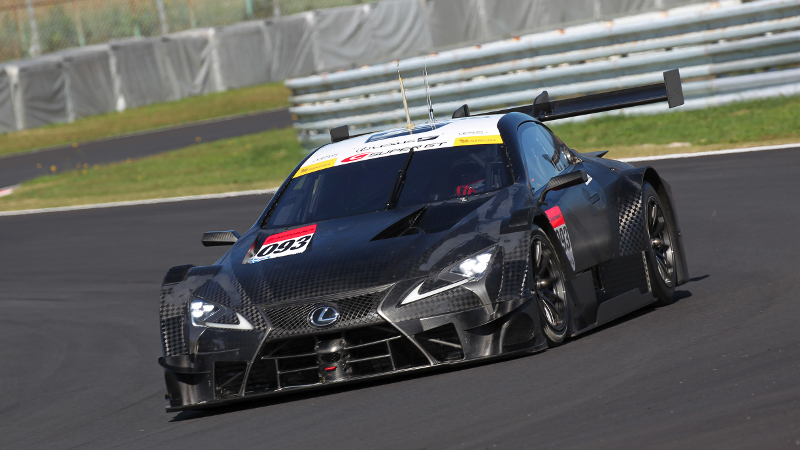A delegation from the Japanese Super GT Championship will be in the DTM paddock at the season finale at the Hockenheimring, with Lexus and Nismo cars set to complete demonstration runs ahead of a possible cooperation with the series.
In the wake of Mercedes announcing its departure from the DTM at the end of the 2018 season, DTM organiser ITR have stepped up efforts to secure additional manufacturers to race alongside Audi and BMW in the predominantly German series.
The DTM and Super GT have been working to create combined rule set for several years, although the start date for the introduction of the joint regulations has been pushed back several times.
A Lexus LC500 and a Nismo Gt-R will complete demo laps for 15 minutes at full racing speeds in front of the spectators attending the finale of the DTM season on both Saturday and Sunday. A 30-minute test will also take place on the Friday.
“This is a great honour for us,” said DTM Chairman Gerhard Berger. “I am delighted that SUPER GT cars will be making an appearance at a DTM event for the first time.
“This is not only a special treat for our fans, but also a strong sign for the future of the DTM, and of how seriously the cooperation with the Japanese GTA organisation and the series’ three manufacturers is being taken.”
GTA (SUPER GT organising body) Chairman Masaaki Bandoh will lead the delegation from Japan, and he added that plans were already being made to send DTM cars to the finale of the Japanese series at the Twin Ring Motegi in early November.
“We are looking forward to seeing our cars in action in Hockenheim,” added Bandoh. “This is a proof of the close relationship between SUPER GT and the DTM. Both series feature the world leading manufacturers.
“It goes without saying that Japanese fans will by no means be denied the opportunity to experience the DTM cars. Plans are afoot for the DTM to send cars to the SUPER GT finale in Motegi.”
At present the new ‘Class One’ regulations, which are to be a unifying set of rules between the two series, are not planned to be brought in until 2019, having been pushed back from an original start date of 2017.
One of the key aspects of the regulations is that it should be possible to cover the costs of running in the respective series through sponsorship, allowing the introduction of works-assisted private teams in the future alongside full manufacturer entries.
“Work on the new regulations is in full swing,” added Berger. “We want to find the balance between technologically advanced cars, with which manufacturers are able to demonstrate their expertise, and racing cars that can be run without legions of engineers.”
The possibility for ‘alternative power sources’ is also being explored as part of the engine regulations for the new ‘Class One’ regulations, opening the door to potential hybrid and battery-powered systems.

